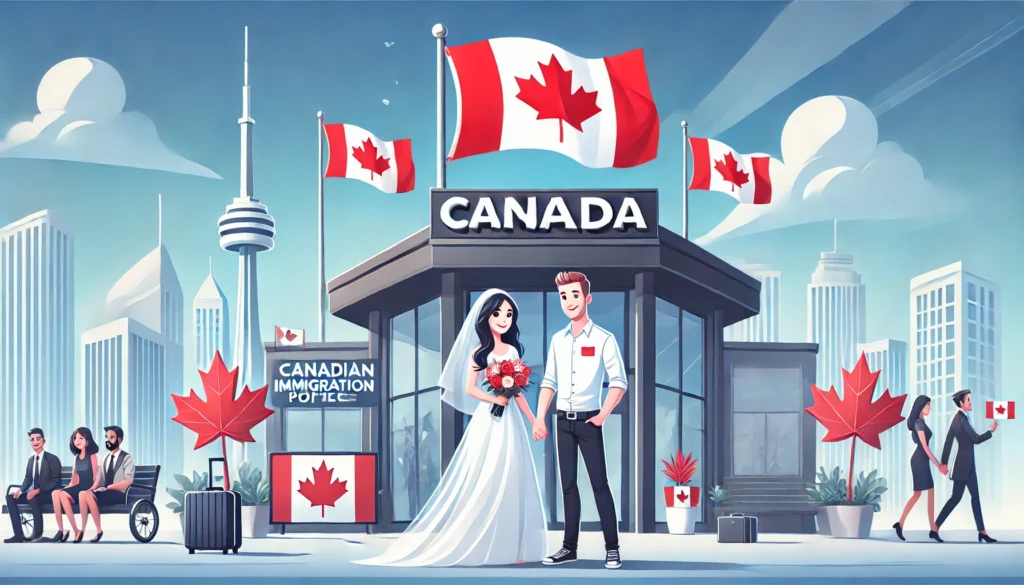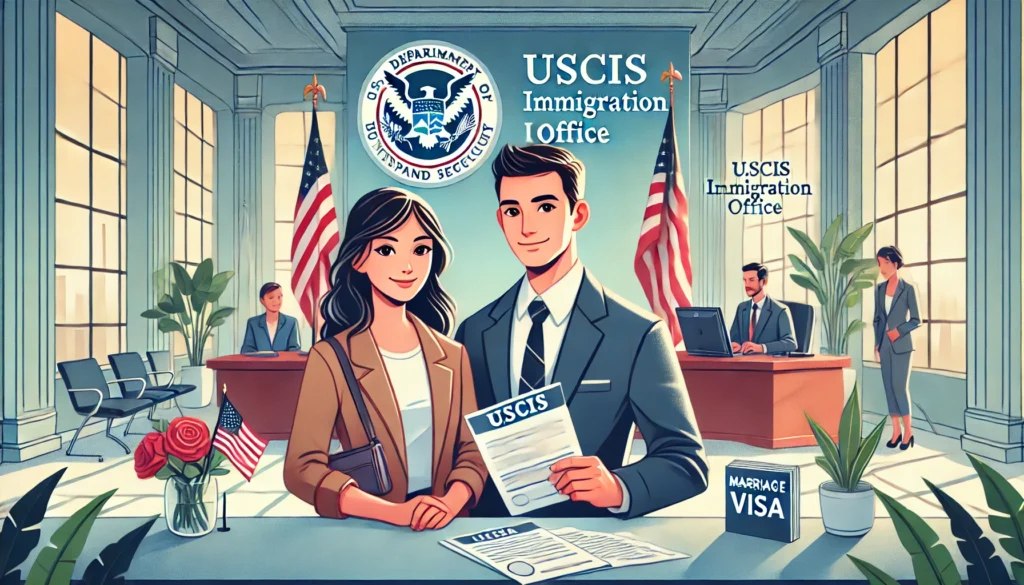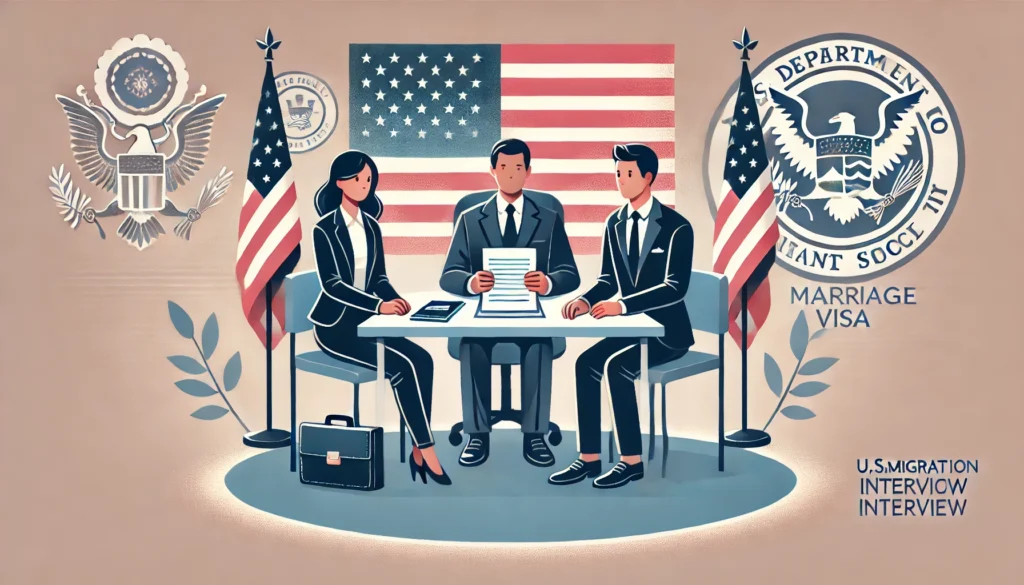Introduction
The consular processing marriage visa interview is a critical step for couples navigating the U.S. immigration process. This interview is conducted at a U.S. embassy or consulate in the foreign spouse’s home country and serves as the final stage in determining visa eligibility. Proper preparation can significantly increase your chances of success and ensure a smooth transition toward building a life together in the United States. This guide provides a comprehensive overview of how to prepare for a consular processing marriage visa interview, from required documentation to tips for confidently answering questions.
Understanding the Consular Processing Interview
The purpose of the consular processing interview is to:
- Verify Relationship Authenticity: Confirm that your marriage is genuine and not solely for immigration purposes.
- Assess Eligibility: Determine if the foreign spouse meets the visa requirements, including financial, medical, and legal criteria.
- Review Documentation: Evaluate the accuracy and completeness of submitted documents to ensure compliance with U.S. immigration laws.
The interview typically lasts 15–30 minutes, but preparation and organization are essential to avoid delays or complications.
Key Documents to Bring to the Interview
Essential Documentation Checklist:
- Identification and Proof of Marriage:
- Valid passport (with at least six months of validity).
- Original or certified copy of your marriage certificate.
- Birth certificate of the foreign spouse.
- Visa Application Forms:
- DS-260 Confirmation Page (completed online).
- Visa fee payment receipt.
- Proof of Relationship:
- Wedding photos and other pictures together.
- Communication records (emails, texts, or social media messages).
- Joint financial accounts, leases, or utility bills.
- Financial Documents:
- Form I-864 (Affidavit of Support) completed by the U.S. citizen spouse.
- Tax returns, pay stubs, and employment verification letters.
- Evidence of assets if income is insufficient.
- Medical Examination Results:
- Sealed envelope containing Form I-693 from a USCIS-approved physician.
- Additional Documents:
- Police certificates from any country where the foreign spouse lived for more than six months.
- Previous marriage or divorce records, if applicable.
- Any additional evidence requested by the consulate.
Common Questions Asked During the Interview
Consular officers ask questions to verify the authenticity of your relationship and assess your eligibility for a visa. Common topics include:
Relationship-Based Questions:
- How did you and your spouse meet?
- When and where did you get married?
- What do you love most about your spouse?
- What activities do you enjoy doing together?
Family and Friends Questions:
- Have you met each other’s families?
- Who attended your wedding?
- Can you name some of your spouse’s close friends?
Daily Life Questions:
- How do you communicate when you’re apart?
- What are your spouse’s hobbies or favorite foods?
- What is your spouse’s job, and where do they work?
Future Plans Questions:
- Where do you plan to live in the United States?
- Do you plan to have children?
- How will you support yourselves financially?
Tips for Success
1. Practice Answering Questions
- Rehearse common interview questions with your spouse to ensure consistency in your answers.
- Focus on being clear and honest, avoiding rehearsed-sounding responses.
2. Organize Your Documents
- Arrange all required documents in a folder or binder for easy access during the interview.
- Use labeled dividers to separate different categories of evidence, such as financial records and relationship proof.
3. Dress Professionally
- Wear business casual or formal attire to convey respect for the process.
- Ensure your appearance is neat and presentable.
4. Arrive Early
- Plan to arrive at the consulate at least 30 minutes before your appointment time.
- Account for traffic, security checks, and other delays.
5. Stay Calm and Polite
- Answer questions confidently and respectfully, even if they seem repetitive or intrusive.
- Avoid arguing with the consular officer, as this can negatively impact your case.
What Happens After the Interview
Possible Outcomes:
- Approval:
- If approved, the consular officer will provide instructions for receiving your visa, typically within a few weeks.
- Administrative Processing:
- Additional background checks or documentation may be required, delaying the decision.
- Request for Additional Evidence (RFE):
- If the officer needs more information, they will issue an RFE outlining the required documents.
- Denial:
- If the visa is denied, the consular officer will explain the reasons and provide guidance on next steps, such as reapplying or appealing the decision.
Common Mistakes to Avoid
- Bringing Incomplete Documentation:
- Double-check the consulate’s specific document requirements to ensure nothing is missing.
- Providing Contradictory Answers:
- Review your application and practice interview questions to avoid inconsistencies.
- Being Late or Unprepared:
- Arriving late or appearing disorganized can leave a poor impression on the consular officer.
- Appearing Nervous or Defensive:
- Stay calm and composed to demonstrate confidence in your case.
Conclusion
Preparing for a consular processing marriage visa interview requires careful planning and attention to detail. By organizing your documents, practicing for common questions, and presenting yourself professionally, you can increase your chances of success and move closer to reuniting with your spouse in the United States. Remember, thorough preparation not only strengthens your case but also helps you approach the interview with confidence and ease.


